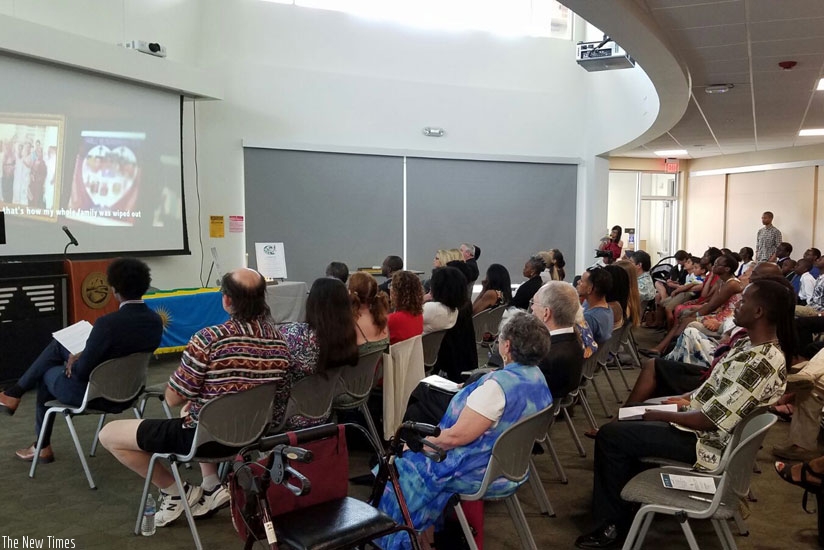Denial is the last phase of a genocide, hence fighting this aspect is vital in ensuring that genocide never happens again anywhere in the world, genocide experts and scholars have said.


Denial is the last phase of a genocide, hence fighting this aspect is vital in ensuring that genocide never happens again anywhere in the world, genocide experts and scholars have said.
The Rev. Kristin Stoneking, the executive director for the Fellowship of Reconciliation, said the world should join hands in stopping the cycle of violence by interrupting any unjust situations and structures, such as denial and revisionism.
Stoneking made the remarks while addressing the Friends of Rwanda Association (FORA), who had gathered in California, US, to commemorate the 1994 Genocide against the Tutsi, last weekend.
The commemoration event, held at Consumnes River College (CRC) in Elk Grove, California, focused on fighting genocide ideology, "to ensure ‘Never Again’ becomes reality.”,
The event was attended by Rwanda’s Ambassador to the US, Mathilde Mukantabana; Dr Edward Bush, the president of CRC; Jon Fish, the president of the Interfaith Council of Greater Sacramento, among other officials, members of Rwandan community in the US; and friends of Rwanda.
Founded in 1995, FORA is a non-profit people-to-people programme aimed at supporting Genocide orphans, especially those living in remote areas of Rwanda.
"The 1994 Genocide against the Tutsi was not the first act of violence against the Tutsi,” said Stoneking, adding that "the violence against the Tutsi begun back in colonial time.”
Dr Barbara Lesch McCaffry, the board president for the Alliance for the Study of Holocaust and Genocide at Sonoma State University, said to deny the Genocide is to "surely deny your own humanity.”
McCaffry, who claims to have been the "only English speaking reporter” in Rwanda during the Genocide, said genocide studies and education is another means to avoid future genocides, and to combat genocide denial.
"The cost of genocide denial is too high. For the dead and the living, we must bear witness,” said McCaffry, while reiterating on the significance of commemorating the 1994 Genocide against the Tutsi.
Christyne Davidian, a former board president for the Alliance for the Study of Holocaust and Genocide at Sonoma State University and founder of Armenians of the North Bay, and third generation of Armenian Genocide survivor, called on all Genocide survivors and those affected to tell their children about their experiences during or after the genocide to ensure genocide denial cannot continue to occur.
Dr Ernest Uwazie, the director of the Centre for African Peace and Conflict Resolution at CSU Sacramento, called for vigilance, adding that "instead of agonising, we should organise to fight genocide denial and ideology, to ensure that genocide never happens again.”
Rwanda in peacekeeping missions
Amb. Mukantabana said it is from the "harsh lessons” learnt in the Genocide against the Tutsi that Rwanda’s post-Genocide government took it upon itself to contribute to peace through sending its military and police troops to various peace-keeping operations across the world.
The envoy said in Rwanda’s call for the world to become signatories of the Kigali Principles, "We are doing our part in waging peace. We have made a commitment that our men and women in uniform will support international and regional peacekeeping and peace-building efforts.”
The Kigali Principles are a voluntary set of principles on the protection of civilians in peacekeeping initially agreed upon by the Governments of Rwanda, Italy, the Netherlands, Uruguay and Uganda in Kigali, following an International Conference on Protection of Civilians in May 2015.
Several countries have since endorsed the Kigali Principles, with Poland becoming the newest member in April.
The Principles establish that protection of civilians is the core function of peacekeeping and that effective protection of civilians requires properly trained troops, adequate equipment, and a strong political commitment.
editorial@newtimes.co.rw


